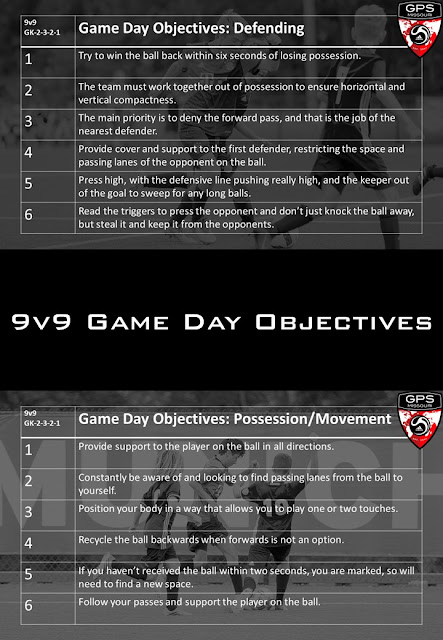If you enjoy my content and want to express gratitude, I would be so happy if you made a contribution towards my Argentina trip in the summer of 2021. The plan is to go there for four weeks and look at everything football, development, coaching, and culture. Any amount helps. I won't be upset if you ignore this message, as I produce this content purely for the enjoyment of it. Here is the link: http://fnd.us/c1en5f?ref=sh_98yL48
Part of my recent role in Missouri was to take the philosophy of the organisation, and put it into a way that was understandable and accessible to the coaches within our club. Most were relatively inexperienced volunteers, and even those with experience were largely limited to St. Louis. They didn't have the time or the expertise to further themselves, but it was important we did our best to reach them. As a club, we wanted everyone to be on the same page. Some would have their own ideas, and some would have no idea, and no motivation to get one.
Each week, we would send out a curriculum email to the entire club staff. This contained the topics, as well as session examples, and sometimes even videos to help. It was obvious most were either ignoring the email altogether, or reading it, but still doing their own thing. This is when the club president had one of his truly rare good ideas. He said these people work all day, have busy lives with families and jobs, so we need a better way of reaching them. Many will go from work straight to the field, so why not give them something they can put in their coaching bag, that they can look at before setting up their session? So I spent many hours slaving away over PowerPoint to make this beautiful booklet. Many copies were printed, and distributed to each coach. They also had an email sent to them containing the PDF version, which they could download on their phones. In addition to a group on Hive Learning, where such content was always available, and expanded upon, via the website or app.
Here's what I came up with.
We used this at our affiliate club for the one season we were there. I updated the logos a little when we left and made our own club. Hopefully this might be of some use to coaches out there, while potentially giving parents a little more perspective on what we do, how we do it, and why we do it. Educated and informed parents can help to make better decisions for their kids. Would you send a kid to a school if they didn't have a curriculum? This is why you should ask to see a club's methodology before forking out huge sums of cash.
Everything displayed in here is only an example or a suggestion. There are three potential exercises or activities to use. There are objectives a coach can borrow. There are questions that can be asked at the end to consolidate learning.
Looking back at the start, it's amazing how hard we had to work to get some coaches to do the basics, or even care about their kids. Imagine having to be reminded not to be on your phones during sessions. I tried to explain the philosophy in simple terms, as to WHY WE SHOULD DO IT. Many still didn't. They knew better.
The experience of the child is the most important thing. Not the reputation or enjoyment of the coach. This is why I go to great lengths to remind everyone that it's the players' game. We are just facilitators of that. Coaches are not lecturers, but architects of the training environment. I did everything I could to make every activity and exercise not involve a line or players sitting out, but the frequency of this seemed to increase, the same with laps. Like the coaches were using the kids to get back at us and our messaging. Even had game day objectives so they wouldn't just shout nonsense from the sidelines. On hindsight, I doubt they were bright enough to be that vindictive, but how can you still have kids sitting out or running laps when we're showing you better ways to train, without including all that?
As always, happy to discuss, and open to feedback. The coaching community shares, and coaches are the best thieves.
Download this as a PDF.

















































No comments:
Post a Comment